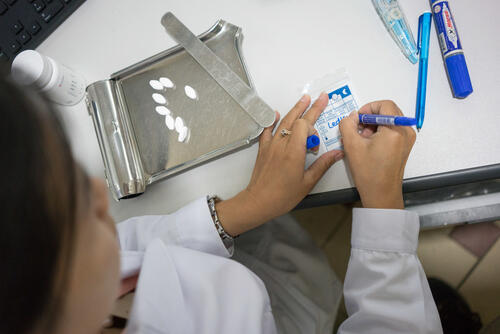
2,900
2,9
1,300
1,3
In May 2016, MSF launched a programme offering free diagnosis and treatment for hepatitis C. Although its prevalence is unknown, it is estimated that between two and five per cent of the Cambodian population is infected. Once considered a lifelong and deadly disease, treatment for this blood-borne virus has been revolutionised in recent years with the arrival of new – and expensive – drugs, called direct-acting antivirals (DAAs).
The project is based at Preah Kossamak hospital in the capital, Phnom Penh. One of its goals is to simplify diagnosis and treatment, to show its cost-effectiveness and make it replicable in other countries. In 2017, MSF treated 2,926 patients with DAAs, which cure more than 95 per cent of people who complete the treatment.
In Preah Vihear province, northern Cambodia, resistance to one of the powerful antimalarial drugs, artemisinin, has been confirmed. MSF is testing strategies to help eliminate the disease – in particular the resistant Plasmodium falciparum form – through a combination of screening, testing and treatment. Teams continued to support testing and treatment in the community and in health facilities, as well as screening for people at risk of infection.
Research carried out in 2017 provided an insight into the development of resistance to the three main drugs used to treat Plasmodium falciparum (or severe) malaria. The outcomes of the research will be evaluated, and recommendations will be made for potential replication elsewhere.


















